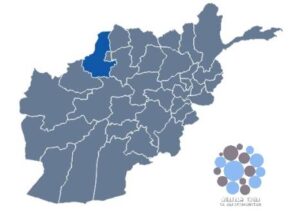
Afghans react to Myanmar tragedy
KABUL (SW): A new round of widespread violence against Rohingya Muslims has begun in Myanmar since the 25th August. As a result of this violence, more than 4 hundred Muslims in Myanmar were killed and the number of refugees has reached to more than 123 thousand people.
The killings of Rohingya Muslims by the Buddhists in recent days have faced a wave of reactions on social media. In response to the situation in Myanmar, a number of Afghan citizens changing their display pictures on their Facebook accounts, have called for justice on the killings of Rohingya Muslims. But other Afghans have shown no reaction stating "the dire situation of Afghanistan" as a reason.
Amanullah Paiman, a member of Wolesi Jirga (lower house), posted on his Facebook page: “The most valuable thing that the Taliban did during their regime in Bamyan was the destruction of the dirty Buddha's statue". He strongly criticizing the killings in Myanmar, attacked the Buddhism and its follower and demanded the destruction of the hill where the Bamiyan Buddha statue is built.
Experts and analysts believe that the expansion of the internet and social media have made the world a global village where users are expressing their feelings in order to end injustices and killings. These experts say that cyberspace has a huge impact on global politics and relationships in today’s world. Some experts think that the Afghan people’s sympathy with Muslims in Myanmar is seen as attracting audiences on social media platforms.
Abdullah Ahmadi, a civil society activist and member of the Transitional Justice Coordination Group, told Salam Watandar that social networking users, reacting to the world events, have shown that the internet has a huge impact on creating universal empathy for peace and the hatred of injustice. He added that Facebook user's responses to the actions of countries, policy makers and international organizations are influential.
Mustafa Zafar, a media activist, sees such reactions from another perspective. He believes that Afghan Facebook users are looking for new subjects to attract more audiences. According to him, in many of these cases, "the reality becomes a victim of fame”. He added that these subjects are not persistent in Afghanistan, and if a new subject is found, the Myanmar case will be forgotten.
Asar Hakimi, another civil society activist, said most Afghans have been sympathizing with the victims of Myanmar on humanitarian grounds to end the tragic event of Myanmar. “Such objections force international institutions to exert pressure on countries like Myanmar”, added Hakimi.
.jpg)
The UN recently blamed the government of Myanmar, led by Aung San Suu Kyi, who won the Nobel Peace Prize, for treating the Rohingya Muslim minority, accusing the country's security forces of "crimes against humanity".
The United Nations High Commissioner for Human Rights indicated that they receive reports of the attack, abuse, and harassment of the Muslim minority in Myanmar.
ENDS





